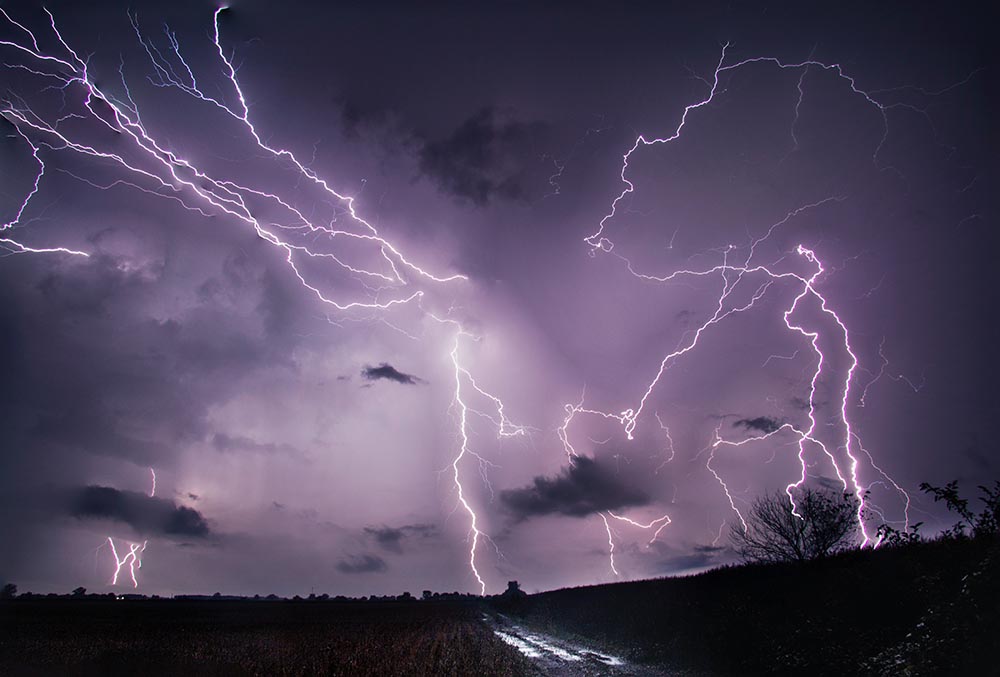The team at Comprehensive Cancer Centers looks at how climate change is having an impact on cancer risks and even treatment options.
Those living in Southern Nevada are aware of the climate, as we deal with extreme heat, monsoon rains and windy days that can fill the air with dust. For us, dust is one of the major factors from our climate that can lead to health risks such as asthma and other respiratory issues treated by the team at Comprehensive Cancer Centers’ lung division. On a larger level, many who call the region home are also mindful of climate change, with our most direct impact being water levels at Lake Mead.
Additionally, there are impacts of climate change that can have a direct effect on cancer risk, as well as treatments for existing patients. This includes the altering environmental conditions, potentially affecting distribution and prevalence of carcinogens. Changes in air and water quality, increased exposure to pollutants, and shifts in the distribution of infectious diseases may contribute to variations in cancer rates.
Climate change is associated with an increase in the frequency and intensity of extreme weather events, such as hurricanes, floods, and wildfires. These events can lead to environmental disruptions, damage to infrastructure, and changes in living conditions, potentially affecting exposure to carcinogens or increasing stress levels, which can impact health.
Changes in temperature and precipitation patterns can influence the distribution of vector-borne diseases. Some of these diseases, such as those transmitted by ticks or mosquitoes, are associated with certain types of cancer. For example, the incidence of liver cancer may be influenced by the spread of liver fluke infections.
Climate change can impact food production and availability, potentially influencing dietary patterns and nutritional intake. Changes in diet, including shifts in the availability and consumption of certain foods, may have implications for cancer risk. For instance, alterations in crop yields could affect the availability of fruits and vegetables, which are protective against certain cancers.
Climate Change and Supply Chain Challenges
As noted in a study shared by Yale climate change can have impacts on supply chains with extreme making it harder for treatments or medical supplies to get to patients in a timely fashion. In 2017, Hurricane Maria was responsible for the closing of a factory that provided the bulk of small-volume intravenous (IV) fluid bags for the continental US, leading to nationwide shortages of IV fluids. In 2021, Hurricane Ida also damaged plastic and pharmaceutical industrial installations, further worsening a shortage of these supplies due to the COVID-19 pandemic. The storm also forced a diversion of shipping trucks, already in short supply, across the country to assist in relief efforts, rather than delivering medicine.
Climate Change and Sun Safety
Another climate change variable that directly impacts residents of Las Vegas and Southern Nevada is found in how it can influence ultraviolet (UV) radiation levels, potentially affecting the risk of skin cancer. Ozone depletion and shifts in cloud cover may alter UV exposure, and prolonged exposure to UV radiation is a known risk factor for skin cancer. In a region with elevated sun risks, residents of our community need to be increasingly more mindful about sun safety.
Climate change effects are not evenly distributed, and vulnerable populations may be disproportionately affected. Communities with fewer resources may face increased health risks, including potential impacts on cancer rates. Social determinants of health, exacerbated by climate change, can contribute to health disparities.
It’s essential to recognize that attributing changes in cancer rates solely to climate change is challenging due to the multi-factorial nature of cancer development. Many factors, including genetics, lifestyle, and healthcare access, contribute to cancer risk and incidence.
Ongoing research is crucial to better understand the complex interactions between climate change and cancer rates. Public health interventions, policies aimed at mitigating climate change, and efforts to adapt to changing environmental conditions can collectively contribute to reducing overall health risks, including the potential impact on cancer rates.
Comprehensive Cancer Centers Can Help
Physicians at Comprehensive Cancer Centers provide a variety of treatment options for patients with cancer. To schedule an appointment with the team at Comprehensive, please call 702-952-3350.
The content is this post is not intended to be a substitute for professional medical advice, diagnosis or treatment. Always seek the advice of qualified health providers with questions you may have regarding medical conditions.



